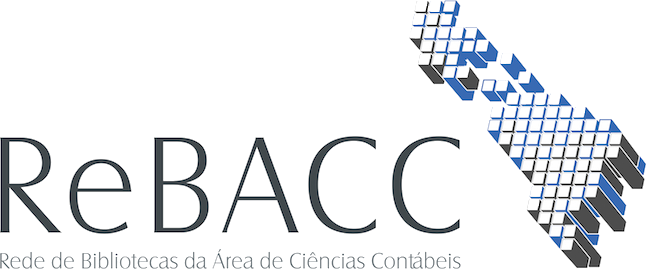Use este identificador para citar ou linkar para este item:
http://rebacc.crcrj.org.br/handle/123456789/4268| Título: | ÉTICA NA CONTABILIDADE DE CUSTOS – DILEMAS DOS PROFISSIONAIS DA CONTABILIDADE DE CUSTOS Ethics in cost accounting – the dilemmas of cost acccounting professionals |
| Palavras-chave: | Ética; Gerenciamento de Resultados; Contabilidade de Custos; Ethics; Results Management; Costs Accounting |
| Editora / Evento / Instituição: | REVISTA DE CONTABILIDADE DO MESTRADO EM CIÊNCIAS CONTÁBEIS DA UERJ |
| Descrição: | As empresas são constituídas, numa perspectiva econômica, com o propósito de agregar riquezas a seus
proprietários. Basicamente, isso decorre do lucro gerado em suas atividades operacionais e pela
maximização de seu valor de mercado refletido no aumento do preço de suas ações. Por outro lado, o
aumento do preço das ações é influenciado por diferentes fatores, dentre eles o próprio lucro das atividades
operacionais, a adequada estrutura de capital e as vantagens competitivas adquiridas. Entretanto, os
administradores encontram-se diante da possibilidade de empregar técnicas e procedimentos que permitam
uma apresentação mais otimista ou pessimista da situação econômica, financeira e patrimonial de uma
empresa. Isso é tratado por pesquisadores e estudiosos como gerenciamento de resultados, com poder de
induzir o mercado a avaliações equivocadas a respeito da empresa. Os contadores, por outro lado, podem
receber pressão dos administradores para escolher alternativas contábeis que melhoram os relatórios de
desempenho. Isso coloca os contadores diante de dilemas éticos, que são acentuados na medida em que os
padrões éticos da profissão também deixam lacunas para interpretações e julgamentos. Em geral, os
conflitos éticos têm seu foco voltado, na literatura contábil, à contabilidade financeira, notadamente quanto
à apresentação dos demonstrativos contábeis; pouco se tem discutido sobre ética relativamente à
contabilidade de custos. O presente artigo tem como propósito discutir a ética na contabilidade de custos
quanto aos procedimentos empregados no sistema de custeio que atende às necessidades informacionais requeridas pelos demonstrativos contábeis elaborados em conformidade com os Princípios Fundamentais de Contabilidade.
Palavras-Chave: Ética; Gerenciamento de Resultados; Contabilidade de Custos
ABSTRACT
In the economic viewpoint, the companies are established aiming at adding wealth to their owners.
Basically, this results from the profit generated in their operating activities and from the maximization of
their market value reflected on the increase of their actions’ price. In the other hand, the actions’ price
increase is influenced by different factors, among which the own profit of the operating activities, the
suitable structure of capital and the acquired competitive advantages. However, the managers are before
the possibility to employ techniques and procedures that allow for a more optimistic or pessimistic
presentation of the a company’s economic, financial and patrimonial situation. This is addressed by
researchers and scholars as a results management, able to induce the market to mistaken evaluations
concerning the company. The accountants, in the other hand, may receive pressure from the managers to
choose accounting alternatives that improve the performance reports. This sets the accountants before
ethical dilemmas, that are emphasized as the profession ethical standards also leave gaps for
interpretations and judgments. Generally, in the accounting literature, the ethical conflicts have their
focus on the financial accounting, namely as for the presentation of the accounting reports; the discussion
about ethics pursuant to the costs accounting is uncommon. The objective of this article is to discuss ethics
in the costs accounting as for the procedures employed in the cost system that meets the informational
needs required by the accounting reports prepared according to the Basic Principles of Accounting.
Keywords: Ethics; Results Management; Costs Accounting. In the economic viewpoint, the companies are established aiming at adding wealth to their owners. Basically, this results from the profit generated in their operating activities and from the maximization of their market value reflected on the increase of their actions’ price. In the other hand, the actions’ price increase is influenced by different factors, among which the own profit of the operating activities, the suitable structure of capital and the acquired competitive advantages. However, the managers are before the possibility to employ techniques and procedures that allow for a more optimistic or pessimistic presentation of the a company’s economic, financial and patrimonial situation. This is addressed by researchers and scholars as a results management, able to induce the market to mistaken evaluations concerning the company. The accountants, in the other hand, may receive pressure from the managers to choose accounting alternatives that improve the performance reports. This sets the accountants before ethical dilemmas, that are emphasized as the profession ethical standards also leave gaps for interpretations and judgments. Generally, in the accounting literature, the ethical conflicts have their focus on the financial accounting, namely as for the presentation of the accounting reports; the discussion about ethics pursuant to the costs accounting is uncommon. The objective of this article is to discuss ethics in the costs accounting as for the procedures employed in the cost system that meets the informationalneeds required by the accounting reports prepared according to the Basic Principles of Accounting. Keywords: Ethics; Results Management; Costs Accounting. |
| URI: | http://rebacc.crcrj.org.br/handle/123456789/4268 |
| Outros identificadores: | http://www.atena.org.br/revista/ojs-2.2.3-06/index.php/UERJ/article/view/617 |
| Aparece nas coleções: | Revista de Contabilidade do Mestrado em Ciências Contábeis da UERJ |
Arquivos associados a este item:
Não existem arquivos associados a este item.
Os itens no repositório estão protegidos por copyright, com todos os direitos reservados, salvo quando é indicado o contrário.

